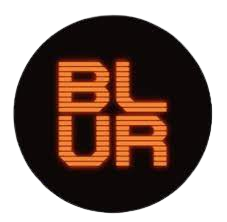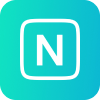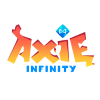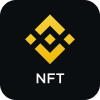OpenSea

Top Pick
OpenSea
Top Pick
Features
Largest NFT marketplace, supports a wide variety of NFTs, easy to use
Fees
2.5% fee on the seller
Supported Chains
Ethereum, Polygon, Solana, Base
-
- OpenSea was founded in 2017
- NFT categories offered: Art, domain names, virtual worlds and more
- Fees: OpenSea charges a 2.5% fee each to the buyer and the seller
- Popularity: The platform has over 1 million users and has facilitated over $10 billion in sales
- In January 2022, OpenSea raised $300M at a $13B valuation. However, they have since experienced substantial decline in transaction volumes during the crypto winter requiring some layoffs
-
-
Wide variety of NFT categories available
-
Easy-to-use interface and intuitive browsing experience
-
High liquidity relative to most other marketplaces
-
Time-tested smart contracts mean it is a safe platform to use
-
Extensive community and active user base
-
Support for multiple blockchain networks
-
The ability for artists to mint and sell their NFTs
-
High gas fees associated with Ethereum transactions in addition to the 2.5% fee
-
Some users have reported occasional site performance issues during peak periods
-
-
OpenSea is a prominent decentralized marketplace for Non-Fungible Tokens (NFTs) built on the Ethereum blockchain. It serves as a hub where creators can list and sell their unique digital assets, and buyers can discover and acquire a wide range of NFTs, including digital art, collectibles, virtual real estate, in-game items and more. OpenSea offers a user-friendly interface, allowing users to browse through numerous categories, filter by price or rarity and participate in auctions or fixed-price transactions. It has played a significant role in the growth and popularity of the NFT market.
-
While OpenSea was once by far the most dominant NFT marketplace, its market share has been eroded by a number of new competitors. OpenSea's user experience and functionality remains top notch. However, it is important to remember when buying or selling NFTs that with NFT liquidity being fractured among a number of marketplaces the best price may not always be on OpenSea. To facilitate more trading, OpenSea launched a new platform meant for advanced traders which includes a marketplace aggregation feature.
Blur

Blur
Features
Largest marketplace by volume, featuring a suite of tools for advanced traders and general collectors alike
Fees
0.5% up to 10% depending on the sellers choice
Supported Chains
Ethereum
-
- Blur was founded in 2022
- NFT Categories Offered: All NFTs minted on Ethereum
- Fees: Blur charges as low as 0% royalties and as high as 10%
- Popularity: Over 50% of NFT volume is on Blur
- Best platform for advanced traders
- Blur raised $11M in seed funding
-
-
Tons of features for traders
-
The most liquid NFT market due in large part to its incentivized bidding system
-
Clean user interface with a number of customizations available
-
Costly gas fees associated with Ethereum transactions.
-
No support for other blockchains
-
Incentivized bidding sometimes leads to flash crashes of projects as supply held by short term traders can skyrocket
-
-
Blur has branded itself as "the marketplace for pro traders" and through a stream of tool updates and token incentives it has embodied that moniker. Originally launching to select users as a beta in 2022, Blur took the NFT market by storm by delivering a massive airdrop of their governance token, $BLUR, to people who traded on their platform. Since then they've occupied the top volume spot for marketplaces and despite a severe market decline Blur continues to innovate with new features.
-
Blur's main focus is on professional NFT traders. Therefore the entire purpose of the platform is to facilitate fast trading over collecting. Blur's share of market liquidity has been extremely dominant over 2023, and with the $BLUR token incentives continuing to run on we expect this will remain the case for the foreseeable future.
Bidding mechanics, the ability to sweep hundreds of tokens with a few clicks of a button, a new lending platform called Blend and their portfolio management page create a pristine experience for traders both new and veteran. While many traders find their home on Blur, it is not really meant for art collectors or longer term holders and thus most "fine-art" NFTs are sold elsewhere.
Magic Eden

Magic Eden
Features
Largest NFT marketplace on Solana
Fees
2% fee on the seller
Supported Chains
Solana, Ethereum, Polygon, Bitcoin
-
- Magic Eden was founded in 2021
- NFT Categories Offered: Everything
- Fees: 2% on the seller, with collection royalties enforced
- Popularity: The platform has rapidly grown, at times even eclipsing the volume of OpenSea
-
-
Strong community from Solana
-
Wide variety of NFTs on various chains to trade
-
User Interface is clean
-
Enforced royalties are a burden on traders
-
Low liquidity and low volume
-
-
Magic Eden is the leading Solana-based marketplace, now offering support for Ethereum and Polygon collections as well. The marketplace was founded in 2021 and quickly became the most popular hub for Solana NFTs with a dominant share of the Solana NFT market for many months. Magic Eden added support for Ethereum in 2022 on their NFT launchpad which was responsible for high-profile mints such as Azra Games.
-
Despite overall market pullback, Magic Eden remains a prominent marketplace. Interestingly, Magic Eden surged to the top of the volume charts when they became one of the first marketplaces to offer zero fee trading in an attempt to attract more high-frequency traders to the platform. This decision was controversial at the time, and ended up sparking a broader war over whether royalties should be enforced on NFT projects despite Magic Eden later reverting to enforce collection royalties themselves.
Magic Eden sets itself apart with a clean UI, a marketplace that is easy to navigate and a launchpad that has provided users with access to a number of big projects. For these reasons, Magic Eden is a top choice for collectors and traders alike and should be considered as a top marketplace. However, it should be noted Magic Eden's volume share has dwindled, which leads to reduced liquidity on the platform, and higher friction for trading.
Rarible

Rarible
Features
Similar to OpenSea, but with a focus on high-quality or art NFTs
Fees
1% fee on both the buyer and seller
Supported Chains
Ethereum, Polygon, MATIC, Tezos, Immutable X
-
- Rarible was founded in 2020
- NFT Categories Offered: Collectibles, music, sports and virtual worlds
- Fees: Rarible charges a 1% fee for transactions, for both buyers and sellers on top of the collection-specific royalty rate
- Popularity: Rarible has over 1 million users and has facilitated over $2 billion in NFT sales
- Best platform for artists to earn royalties
-
-
Artist-friendly features, including royalty earnings and self-minting capabilities
-
Keeps true to their decentralization values by having a governance token
-
User-friendly interface with intuitive navigation
-
Costly gas fees associated with Ethereum transactions
-
Limited support for other blockchain networks
-
Typically low volume which can make it difficult to sell NFTs
-
-
Rarible is a decentralized marketplace that is built on the Ethereum blockchain and focused on empowering artists and collectors. It allows creators to mint, sell and buy unique digital assets directly on the platform. Additionally, Rarible enforces strict royalties on all collections which enables artists to earn ongoing income from secondary sales. This focus has made it a popular choice in the NFT community.
Rarible's governance token, $RARI, can be used to vote on platform initiatives and also as rewards for users of the marketplace.
-
Rarible is dedicated to empowering artists and offers innovative features that make it a compelling choice for both creators and collectors. Their platform was once one of the most popular, however Rarible usage has dropped off dramatically over the past year through the current NFT bear market. Many NFT buyers now favor quick trades over collecting which means low or no royalty platforms, or better yet those with token incentives are a more favorable option.
SuperRare

SuperRare
Features
Focuses on high-end digital art, curated selection of NFTs with only verified artists able to mint on the platform
Fees
15% fee on the seller
Supported Chains
Ethereum
-
- SuperRare was founded in 2018
- NFT Categories Offered: Fine art, photography and video
- Fees: SuperRare charges a 15% fee on all sales
- Popularity: SuperRare is one of the most popular NFT marketplaces, with over $250 million in sales
- Best platform for high-end NFTs
-
-
A high-quality and curated collection of digital artwork
-
Exclusive access to limited-edition pieces
-
Strong community engagement and collaboration opportunities
-
Integration of social features, such as commenting and sharing
-
Limited focus on NFTs beyond digital art
-
Higher royalty fees than most other platforms
-
Some users have experienced occasional delays in minting and trading artworks
-
-
SuperRare is a peer-to-peer NFT marketplace for curated crypto art built on the Ethereum blockchain, guaranteeing the provenance of every piece of work minted on the site. The platform strongly focuses on community and curation and has been praised for its high-quality standards for artists. A rigorous application process is required to be able to mint on the site. Some of the highest non-auction-house sales of NFTs have been on SuperRare, and it is the gold standard for premium digital art collectors.
-
SuperRare's focus is on very exclusive, limited-edition digital art maintaining a commitment to supporting the artists. This also makes it an attractive marketplace for collectors seeking exclusive and high-quality NFTs. For checking out the best NFT art and artists on the market, SuperRare is the place to go.
NBA Top Shot

NBA Top Shot
Features
Marketplace for NBA Top Shot digital trading cards
Fees
15% fee on the buyer and 2.5% fee on the seller
Supported Chains
Flow
-
- NBA Top Shot was founded in 2020
- NFT Categories Offered: Moments, Base Set, Limited Edition and Legendary
- Fees: No fees for buyers. When a Moment is sold, the original owner gets 85% and Dapper Labs receives a 15% fee
- Popularity: NBA Top Shot is one of the most successful NFT projects in history with over $700 million in sales and 800,000+ users
- NBA Top Shot is the best platform for NBA NFT products
-
-
Officially licensed NBA collectibles, including iconic game highlights
-
Active community and engagement through Moments, player highlights and popularity of the NBA
-
Different rarity levels and scarcity through limited editions
-
User-friendly interface and seamless integration with the Flow blockchain
-
Top Shot helped kickstart the NFT bull run with its popularity
-
Limited to NBA-related content
-
Packs can be limited in availability and subject to high demand, resulting in scarcity
-
Ongoing lawsuit makes Moments a risky purchase
-
Popularity has dramatically decreased since its peak
-
-
NBA Top Shot is a marketplace where fans can buy, sell, and trade digital collectibles called Moments. Moments are digital representations of iconic NBA plays, such as dunks, three-pointers and blocks, to name a few. The platform's partnership with the National Basketball Association has significantly increased its popularity as the Moments are officially licensed. NBA Top Shot moments are minted on the Flow blockchain, a fast and cheap blockchain. Top Shot is a subsidiary of Dapper Labs, a blockchain technology company.
-
NBA Top Shot is the sole NFT partner with the NBA, offering officially licensed digital collectibles. In the past this propelled it to the forefront of the NFT landscape due to providing basketball fans and collectors exciting, unique and authenticated NBA digital assets. However, after a group of investors brought a suit against Dapper Labs claiming they issued unregistered securities in February 2023, Top Shot has mostly faded into the background aside from passionate fans who truly enjoy owning the Moments.
Nifty Gateway

Nifty Gateway
Features
Popular NFT marketplace for digital art and collectibles
Fees
5% fee on the buyer and 2.5% fee on the seller
Supported Chains
Ethereum, Solana
-
- Nifty Gateway was founded in 2018
- NFT Categories Offered: Art, music, sports and video games
- Fees: 2.5% on seller, 5% on buyer
- Popularity: Nifty Gateway has over 1 million registered users and over $1 billion in sales volume
-
-
User-friendly interface
-
Nifty Gateway offers NFTs from top artists and brands
-
Strong track record of security and reliability
-
Minting fees are covered by the platform to allow for more artists to mint
-
Crypto and fiat can be used to purchase NFTs
-
Fees can be high relative to other marketplaces
-
The selection of NFTs on the platform is mostly limited to art, rather than an all-in-one marketplace like OpenSea
-
Small user base in the current market means low liquidity on the platform
-
-
Nifty Gateway is a platform that aims to make NFTs more accessible and user-friendly for artists and collectors. Mostly focused on art NFTs, Nifty Gateway makes it easy for artists to mint their work while also covering the transaction fees required to do so. Nifty Gateway has hosted high-profile NFT drops (releases or launches of brand new NFTs), resulting in record-breaking sales. They have collaborated with many artists, celebrities and brands to launch exclusive NFT collections.
-
Overall, Nifty Gateway has a clean platform for minting, buying and selling NFTs. Despite this their popularity has decreased to the point where very few collectors now look to purchase on Nifty. This may be more indicative of market conditions rather than Nifty itself, but the data is objective. On the flip side, Nifty remains a great platform for smaller artists to deploy their creations and remains in the public mind for this reason.
Axie Marketplace

Axie Marketplace
Features
Marketplace for Axie Infinity NFTs, a popular blockchain game
Fees
5.25% fee on the seller
Supported Chains
Ronin
-
- Axie Marketplace was founded in 2018
- NFT Categories Offered: Axies, accessories, lands, land items, bundles, runes and charms
- Fees: 5.25% fee imposed on the seller
- Popularity: Axie Marketplace has recorded 1 million Axies traded since its launch
-
-
Play-to-earn opportunities
-
Unique and diverse Axie creatures. Provides a platform for players to engage in peer-to-peer transactions, allowing them to find and acquire new Axies to add to their collection or sell their existing Axies to other players
-
Active community and engagement within the Axie Infinity ecosystem
-
Integration of blockchain technology and decentralization principles ensures transparent and secure ownership
-
Limited to the Axie Infinity game
-
The barrier of entry for new players is the cost of acquiring Axies
-
Some new users may find it difficult to get their funds onto the Ronin network
-
-
Axie Infinity is a popular blockchain-based game that pioneered the "play-to-earn" concept by combining elements of digital pet ownership, gaming and decentralized finance (DeFi). In Axie Infinity, players can collect, breed and battle cute creatures called Axies, which are non-fungible tokens (NFTs) stored on the Ethereum blockchain.
These Axies can be bought, sold and traded, allowing players to build virtual collections and potentially earn in-game rewards and cryptocurrency (AXS and SLP tokens) by participating in battles and completing various gameplay activities. The game gained significant popularity in 2021, in large part due to the financialization of the game. The earning capability meant that citizens in developing nations could make a wage simply by playing and it spread like wildfire.
The Axie marketplace is built on the game's network, the Ronin blockchain, and is the place to trade all things Axie.
-
Axie Marketplace is integrated with Axie Infinity's play-to-earn ecosystem. This integration has created a unique avenue for gamers and collectors to monetize in-game assets. However, this also means the platform isn't meant for anybody outside the Axie ecosystem.
Foundation

Foundation
Features
Invite-only marketplace for high-end digital art
Fees
5% fee on the seller
Supported Chains
Ethereum
-
- Foundation was founded in 2021
- NFT Categories Offered: Art, music, photography and video
- Fees: Foundation charges a 5% marketplace fee to the seller on all NFT sales
- Popularity: Foundation Marketplace has become one of the most popular NFT marketplaces, with over $800 million in sales
-
-
High-quality curation and focus on showcasing digital art
-
Exclusive community of artists and collectors
-
Integration of unlockable content
-
Collaboration opportunities between artists and collectors
-
Limited accessibility for artists due to the invitation-only system
-
Ethereum gas fees can be costly
-
Limited to just digital art
-
-
Foundation is a niche NFT marketplace that curates high-quality digital art. It is an invitation-only platform that operates on the Ethereum blockchain, which means users may have to deal with gas fees. Foundation's emphasis on curation and exclusivity has attracted a community of passionate collectors.
-
Foundation's niche is in curating digital art, similar to SuperRare. While it remains relatively exclusive, the Foundation application process is more lenient than others which has resulted in a vast ecosystem of smaller artists and big artists alike publishing on the platform. For collectors looking for lower price tag digital art that is still high quality, Foundation is a good place to start.
Binance NFT Marketplace

Binance NFT Marketplace
Features
NFT marketplace from Binance, the largest cryptocurrency exchange
Fees
1% fee on the buyer and 1% fee on the seller
Supported Chains
BNB Smart Chain, Ethereum, Polygon, Bitcoin
-
- Binance NFT Marketplace was founded in June 2021
- NFT Categories Offered: Art, collectibles, esports, gaming, music, sports and utility
- Fees: Binance NFT Marketplace charges a 1% fee for sellers
- Popularity: Binance NFT Marketplace has over 1 million registered users and has sold over $1 billion of NFTs
-
-
Integration with the Binance ecosystem
-
Support for multiple blockchains, offering flexibility for buyers and sellers
-
A diverse range of NFT categories is available
-
User-friendly interface
-
BNB has historically had lower quality collections than Ethereum
-
Occasional issues with transaction processing or platform stability
-
-
The Binance NFT Marketplace is an online platform developed by the cryptocurrency exchange Binance that focuses on the buying, selling and trading of NFTs. The Binance NFT Marketplace operates on the Binance Smart Chain (BSC) blockchain, offering users a platform to discover, purchase and sell NFTs using Binance's native cryptocurrency, BNB. The marketplace aims to provide a user-friendly and secure environment for the NFT community, facilitating transactions and interactions between creators and collectors within the Binance ecosystem.
Creators can mint and sell NFTs on the platform whereas collectors can trade and explore valuable digital assets. The marketplace leverages Binance Smart Chain's low fees and fast transactions to foster a seamless and user-friendly NFT experience.
-
The Binance NFT Marketplace is associated with the Binance ecosystem, which is a good thing - its user-friendly interface makes it attractive to beginners and experienced collectors. However, the NFT market on BNB never really took off, so Binance's marketplace remains mostly unused. Despite this, Binance's resources and large user base offer significant advantages for artists and collectors using the platform.
KnownOrigin

KnownOrigin
Features
NFT marketplace for high-quality digital art
Fees
15% fee on the seller
Supported Chains
Ethereum
-
- KnownOrigin was founded in 2018
- NFT Categories Offered: Photography, video, sports and games
- Fees: KnownOrigin charges a 15% fee on all sales.
- Popularity: KnownOrigin has 1000+ artists on the platform and over $100 million in NFT sales
-
-
Strong focus on promoting digital art and supporting artists
-
Integration of additional features like auctions and artist royalties
-
Token-based reputation system
-
Ethereum gas fees can be significant when buying, selling or trading artworks
-
Limited accessibility due to the focus on curated digital art
-
-
KnownOrigin is an NFT marketplace that was acquired by Ebay in 2022. The platform aims to provide a curated and artist-centric marketplace, similar to SuperRare, allowing creators to showcase and sell their digital artworks. The platform's dedication to authenticity, curation and artist empowerment has established it as a reputable platform. KnownOrigin also allows artists to create their own creator contracts, giving artists more control over their work and how it is sold.
-
KnownOrigin's long-term support for digital artists has made it a reputable NFT marketplace which boosts its attraction of both artists and collectors. Ebay's acquisition of the platform caused a lot of buzz and contributed to the reputation of KnownOrigin, however like many other NFT marketplaces there are very few users currently.
Top Beluga Pick
Selecting the top NFT marketplace among the twelve mentioned is highly subjective - it really depends on a user's intentions. Each platform offers its strengths and caters to different preferences. Based on their overall impact, popularity, and unique features OpenSea emerges as the top Beluga Pick.
OpenSea has an extensive marketplace, offering a diverse range of NFT categories. It also has a user-friendly interface including the ability to purchase with fiat currency which makes it highly accessible to new entrants in the NFT space. The platform's continuous ability to source liquidity makes it a reliable option for collectors, creators and traders alike making OpenSea a leader in the NFT space.
It's important to note that all the other platforms are certainly not to be considered as runner-ups. They each offer their own advantages, yet in an illiquid market participants flock to wherever the liquidity is. For the time being, that remains on OpenSea and Blur.
Questions & Answers
Q. What are NFT marketplaces?
A. NFT marketplaces are online platforms where individuals can buy, sell and trade non-fungible tokens (NFTs). NFTs are unique digital assets stored on a blockchain, ensuring authenticity and ownership. These marketplaces serve as a hub for artists, collectors and investors interested in buying or selling NFTs.
Q. How do NFT marketplaces work?
A. NFT marketplaces operate by facilitating the buying and selling of unique digital assets. Artists and creators upload their works onto the marketplace platform. Each digital asset is tokenized into a unique NFT (non-fungible token). Buyers can browse through the marketplace to discover and purchase these NFTs. Transactions are recorded on a blockchain, ensuring transparency and ownership verification. Ownership of an NFT grants the buyer exclusive rights to that specific and unique digital asset.
Q. What kind of NFTs are available on these marketplaces?
A. NFT marketplaces offer various digital assets, created by individual artists, musician, and brands including:
- Artwork (paintings, illustrations, animations and digital sculptures)
- Music (music tracks, albums, audio clips)
- Unique digital items, (virtual trading cards, in-game items, virtual pets or virtual fashion accessories)
- Virtual real estate (virtual lands, properties or spaces within decentralized virtual worlds and metaverses)
- Unique digital avatars that users can use in virtual worlds, gaming environments or social platforms
- Digital collectibles (limited-edition artwork, historical artifacts, celebrity memorabilia)
- Digital identities (profiles, reputational assets within virtual communities or social platforms)
Q. How do NFT marketplaces ensure the authenticity of digital assets?
A. NFT marketplaces use blockchain to authenticate and own digital assets. Each NFT is associated with a unique token ID recorded on a blockchain, providing a transparent and immutable record of its history. This decentralized system ensures that the ownership and provenance of NFTs can be easily verified.
Q. How do NFT marketplaces handle copyright and intellectual property rights?
A. NFT marketplaces put the burden of copyright and IP rights on sellers. Before listing an NFT for sale, sellers must have the rights and permissions for the content to sell. However, buyers need to do their due diligence and verify the legitimacy of the NFT before making a purchase.
Q. What fees are associated with using NFT marketplaces?
A. NFT marketplaces typically charge fees for various actions. These actions include listing an NFT and completing a sale. The fees vary between platforms and can be a percentage of the transaction value or a fixed amount. It's essential to be familiar with the fee structure of a marketplace before using it.
Q. Are there any risks associated with buying NFTs from marketplaces?
A. Yes, there are risks involved in buying NFTs from marketplaces. Some of the common risks include counterfeit or stolen NFTs and market volatility. It's crucial to conduct thorough research and verify the authenticity of an NFT.
Q. Are all NFT marketplaces the same?
A. No, all NFT marketplaces are not the same. Some focus on specific types of NFTs, like art or gaming. Others support a wide range of assets. Some marketplaces curate the NFTs that are listed, while others are open to all. The features, functions and user interfaces also vary between platforms. The volume of activity and popularity is not consistent across marketplaces either. Given all these differences, creators and collectors need to evaluate the options based on priorities. No single marketplace will suit everyone's needs.
Q. What happens if a marketplace shuts down?
A. If a marketplace shuts down, it could have implications for NFTs listed on that platform. However, since NFT ownership is recorded on the blockchain, ownership of an NFT should not be affected. It's always recommended to keep backups and records of your NFT transactions.
Q. Are there age restrictions for using NFT marketplaces?
A. Many NFT marketplaces have age restrictions to comply with legal regulations. These restrictions may vary depending on the marketplace's jurisdiction and terms and conditions. Reviewing and adhering to the age requirements of the market you intend to use is essential.
